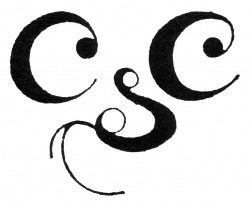What Is A Poem
(No Question, A Statement)
A poem is an outburst,
A poem is an inlook.
A poem is a scrap, even crap**
Become book.
A poem is a taste of breath
Unknown to itself;
Expression of depth
That lays hidden from self.
Is it coincidence poem rhymes with home,
Rhymes with roam,
For the ‘home’ is the mind,
And the ‘roaming’ the journey
To find what’s inside
With respect to the hiding.
A poem is a selfie,
A therapy,
Always, in some way an autobiography:
You without sound.
A highway,
A bumpet-y biway
That’s bound for a destined,
Un-destined, or pre…
A poem is, quite frankly,
Always a me.
**see “Crap Poems” one of my first published poems.
I was so, proud:
Crap Poems
I’m going to begin a file
Called Crap Poems -
Poems that Cid would hate –
With adjectives in surplus,
Rhymes that hurt and burp, plus
Puns too ‘cutesy’ to have rights,
Couplet fights for domination.
These, the sins that edge my mind.
(Inside there’s soul).
Poems that will never find
Routes to immortality.
Others would throw out the spill,
Make scrap of crap –
But I,
Perverse in vanity,
Will seldom let go -
Silly sow, anal cow -
In breach of poem-morality,
With hope of immortality.

Cid Corman -- Lisa Mahoney
Arlene’s poetic mentor (or at least muse/instigator) was Cid Corman. She met him in Kyoto, where he lived from 1958 until his death in 2004. (The face-picture published with Arlene’s poem was the sign that marked his CC coffee shop on Marutamachi street.) Before he was 30 he had initiated the 1st radio poetry program in the US (“This Is Poetry” on WMEX, Boston), had published over 500 poems in about 100 magazines (which he considered as apprentice pieces and never collected them into books), and founded “Origin” which over the next 40 years introduced most of the leading avant garde American poets to the public and also led to the establishment of Origin Press, which remains active. In Kyoto he began composing esteemed translations of Bashō and others, though he was unable to speak, read, or write Japanese. He published over 100 books and pamphlets. Including thousands of poems. Though he insisted he was not a minimalist he eschewed adjectives, adverbs, and all superfluous words. “Any such concentrated speech makes it, a poem. Where is the rule that will accommodate this act?... Your whole life has got to be on the line, and it’s got to be a hot line…. No one can take it from you – or give it to you (beyond those who did) - but you may need time to hear it or let it come through. It happens when you are moved beyond yourself into the open. It requires an honesty with oneself that is always rare – and often when you think your ARE being honest – you are deceiving (kidding) yourself most. It needs a terrible ruthlessness…. It isn’t a matter of sounding good but of being good – living each word in its fullness as they OCCUR. Not to get ahead of yourself but not to fall behind either. It WILL come, if you have the staying power. And even if you fail – it may still feed richly into your life…. The poem you want to write maybe will not come clear to you till within moments of your death. That’s the way it goes…. My work is clear and tends, I think, to make an immediate impression or none at all. Too direct for some, perhaps.”
ReplyDeleteThere are things to be said. No doubt.
And in one way or another
they will be said. But to whom tell
the silences? With whom share them
now? For a moment the sky is
empty and then there was a bird.